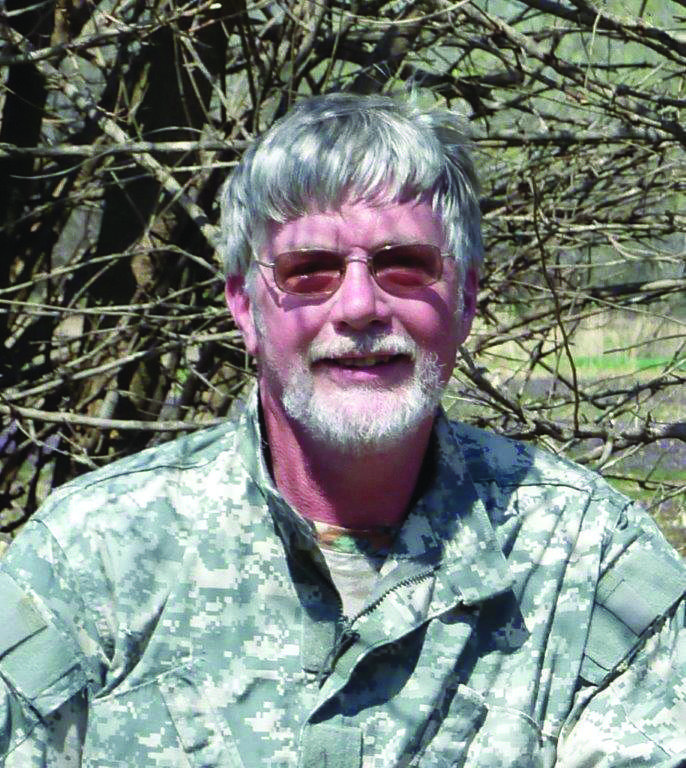Once upon
a time…
By John Marshall
“For one in the Senate to make a contribution to the solution to the difficult problems … each Senator must exercise his own best judgment in accordance with the quiet turning of his conscience.”
‒ Sen. Jim Pearson, Kansas
*
Pearson, a Republican, was expressing his opposition to President Nixon’s Safeguard anti-ballistic missile system (ABM) during a debate in the U.S. Senate in the summer of 1969. Nixon wanted a system of defensive missiles and radar to protect the nation’s arsenal of offensive missiles. Pearson had studied the president’s plan, found it technically weak, and feared that it would only provoke another round of Soviet weapons escalation. He also realized that the political fallout for opposing the president would be heavy and sustained.
But Pearson believed ultimately in conscience, careful reasoning and independent thought. “Not only is this the responsible role for a Senator but it is also the one by which public policy can be defined and understood in our democratic process.”
In explaining his opposition to Safeguard, he had explained his fundamental obligation as a United States Senator.
*
Politicians who think like this, or think at all, are rare nowadays. Kansans once elected them with regularity. Once upon a time, Kansans sent enlightened and effective people to the United States Senate. Jim Pearson (from 1961-’78) preceded Nancy Kassebaum (1978-’97); Bob Dole (1969-’96) followed Frank Carlson (1950-’69). All were stunning achievers.
Pearson, who died in 2009, was a large man, imposing, with a gentle smile and a firm voice. His drawl held a hint of Virginia, residue from his boyhood. He served three terms in the U.S. Senate, and was among the last of our federal public servants from the era of sovereignty in American politics, when people in public office were free to think for themselves and belong to political parties that best fit their beliefs.
He was attracted to Johnson County during service as a Navy pilot at the Olathe Naval Air Station during World War II. He married a local girl, started practicing law, joined the ranks of Kansas Republicans and began to ascend in the party. He served as a city attorney and was elected to the Kansas Senate (1956); he managed John Anderson’s campaigns for attorney general in 1958 and for governor in 1960. When U.S. Senator Andy Schoeppel died in 1961, Anderson appointed him to fill Schoeppel’s seat. Pearson was elected in 1962 to serve the four years remaining in Schoeppel’s unexpired term.
In the early years, Pearson’s statewide constituency was more rural, more provincial and not so concentrated in the east; he drew much of his popularity at the polls from the rural sectors ‒ odd, for an attorney from Johnson County. But in farm country, voters sensed a raw reliability in Pearson: he spoke frankly, didn’t make excuses, preferred the truth, even if unpleasant. He was a square shooter. Kansans re-elected him even after he took a decidedly liberal turn. Pearson had generally voted with his party, especially at the beginning of his Senate service, but he broke with the Nixon Administration by opposing the bombing of Laos and Cambodia, and became a critic of the war in Vietnam.
When Robert Kennedy, Pearson’s University of Virginia Law School classmate, began his presidential campaign with a swing through Kansas in March, 1968, Pearson introduced him in both Lawrence and Manhattan, a joint appearance that was incendiary for the Kansas Republican. Nonetheless, Pearson gained credibility among younger voters for his opposition to the war, and for co-sponsoring legislation to stop the bombings.
Pearson would become a Senate delegate twice to the United Nations and the founding advocate for safe storage of global nuclear waste; he favored reduction of troop strength in Europe, and worked with Walter Mondale to reform Senate cloture rules to end debate. He was a prominent bi-partisan, working frequently “across the aisle” with Democratic colleagues to secure farm support programs, build flood control reservoirs, and bring urban renewal to small cities. Pearson countered conservative voters’ concerns about his ideology by advancing constituent services, campaigning fiercely for rural development, and for the interests of the aviation, livestock, and oil and gas industries.
In 1975, Democrats turned to Pearson for help in carrying the resolution loosening the cloture rule, reducing to three-fifths (60) the number of votes required to end Senate debate. Earlier attempts, also led by Pearson, had failed. This one would be successful. Pearson and Mondale believed that the high bar of the filibuster rule was an obstacle to reasoned decision-making.
“There is a time for debate,” Pearson told his colleagues, “and there is a time to act.”
If only…
*** *** ***




